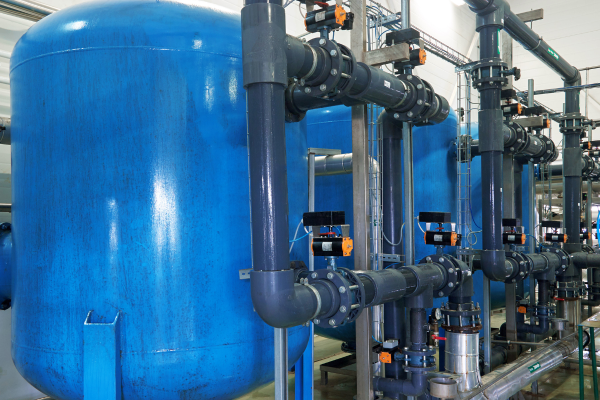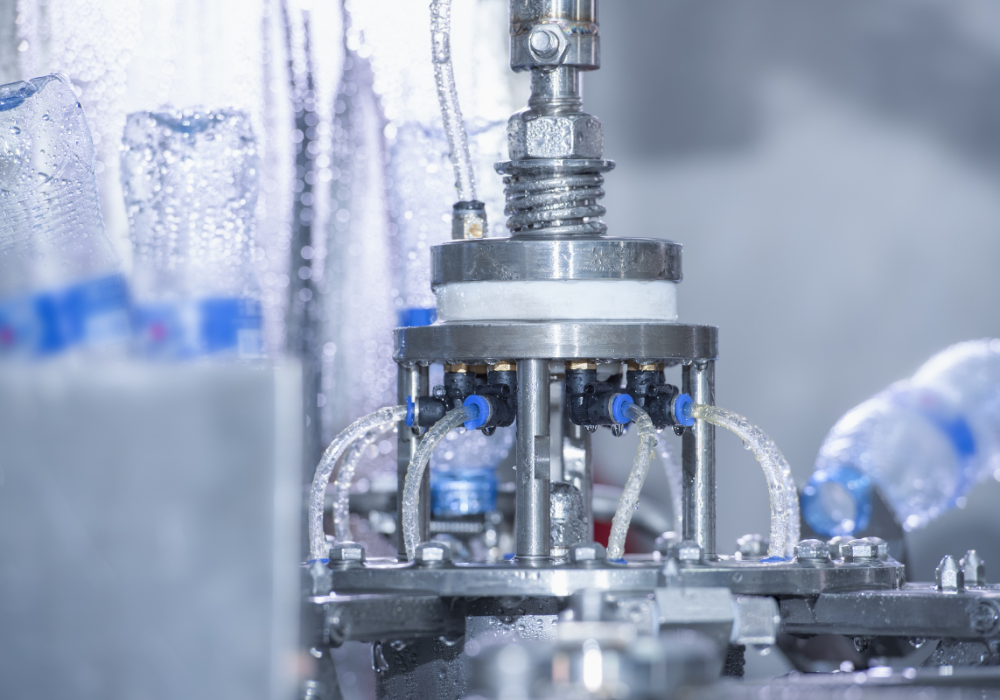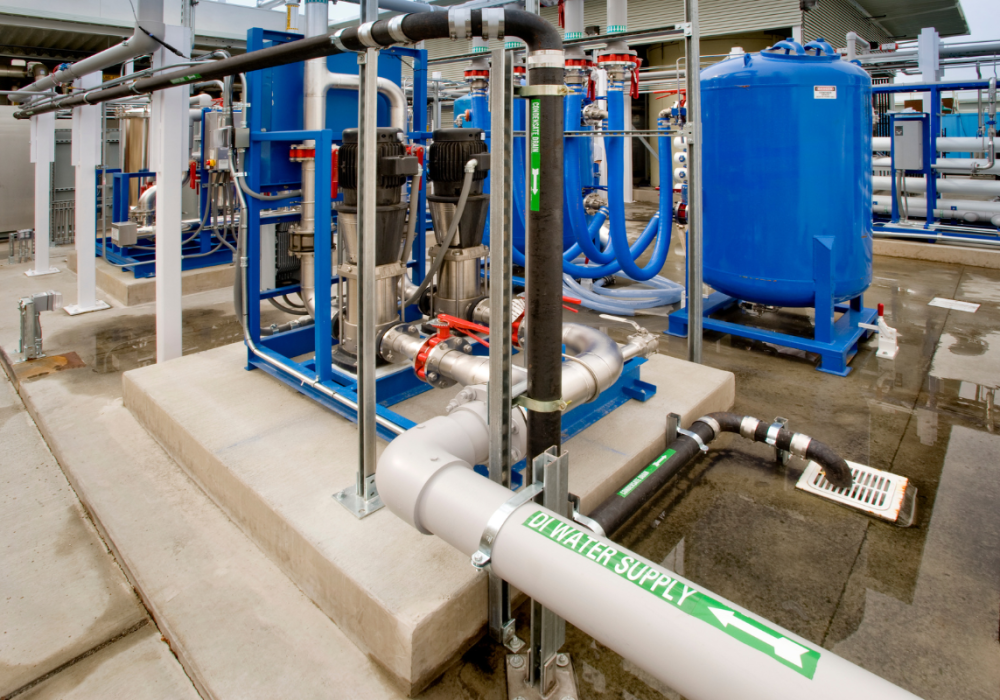Blog
Different Types of Water Filters and How They Work

Water filtration system is essential for purifying our drinking water and removing impurities that may cause harm to our health. With so many different types of water filters available in the market, choosing the right one for your needs can be challenging. This article will discuss the different kinds of water filters and how they work.
1. Reverse Osmosis (RO) Water Filters
Reverse Osmosis (RO) is a water filtration process that uses a semi-permeable membrane to remove contaminants, particles, and ions from water. In this process, pressure is applied to the water, forcing it through the membrane and leaving impurities too large to pass through its pores. The RO system typically includes a pre-filter to remove larger particles, a membrane, and a post-filter to refine the water further. RO filters can remove a wide range of impurities, including dissolved solids, bacteria, viruses, and chemicals, making them useful for various applications, such as producing drinking water, purifying seawater, and industrial processes.
Pros:
-
Highly effective at removing impurities, bacteria, and viruses
-
Can remove up to 99% of all contaminants from water
Cons:
-
Expensive
-
Produces a lot of wastewater
2. Activated Carbon Water Filters

Activated carbon water filters use activated carbon to remove impurities from water. Activated carbon is a form of carbon treated with oxygen. It creates thousands of tiny pores between the carbon atoms, increasing its surface area and making it highly effective at absorbing impurities.
Water is passed through the activated carbon, and the impurities are trapped in the tiny pores of the carbon. This process removes chlorine, sediment, volatile organic compounds (VOCs), and other chemicals, resulting in cleaner and better-tasting water. Activated carbon water filters are commonly used in households, commercial settings, and industries as a cost-effective and efficient method for water purification.
Pros:
-
Affordable
-
Easy to install
-
Highly effective at removing taste and odor from water
Cons:
-
It may not be as effective at removing bacteria and viruses as other water filters.
3. Ultraviolet (UV) Water Filters
Ultraviolet (UV) water filters use UV light to purify water. UV light is a form of electromagnetic radiation with a shorter wavelength than visible light. When water is exposed to UV light, it penetrates the cell walls of microorganisms, such as bacteria and viruses. It damages their DNA, preventing them from reproducing and rendering them harmless. UV water filters effectively destroy bacteria, viruses, and other microorganisms that can cause human illness. They are commonly used in households, commercial settings, and industries as a chemical-free and low-maintenance method for water purification. However, UV water filters do not remove impurities like sediment, chlorine, or chemicals. They require a pre-filter to remove those impurities before the water passes through the UV light.
Pros:
-
Highly effective at disinfecting water
-
Relatively affordable and easy to maintain
Cons:
-
May not remove other impurities such as chemicals and minerals
-
Requires electricity to operate
4. Ceramic Water Filters
Ceramic water filters are devices that use ceramic material to filter out impurities from water. The ceramic material comprises tiny pores that trap contaminants such as bacteria, sediment, and other particles. When water passes through the ceramic filter, the impurities are trapped in the pores, releasing clean water. Ceramic water filters are often combined with other materials, such as activated carbon or silver, to enhance their effectiveness at removing impurities. They are cost-effective, durable, and easy to maintain, making them a popular choice in areas with limited access to clean water. However, ceramic water filters do not remove chemicals or dissolved solids; they must be cleaned regularly to prevent clogging.
Pros:
-
Affordable
-
Highly effective at removing bacteria and other impurities
-
Easy to use
Cons:
-
May not be as effective at removing chemicals and minerals as other water filters
5. Ion Exchange Water Filters
Ion exchange water filters are devices used to purify water by removing harmful contaminants such as lead, mercury, and other heavy metals. These filters exchange ions in the water with similarly charged ions in the filter's resin. Positively charged ions are attracted to negatively charged resin, while negatively charged ions are attracted to positively charged resin. As water passes through the filter, the harmful ions are trapped by the resin and replaced with harmless ions, resulting in purified water. Ion exchange filters are commonly used in residential and commercial applications and are known for their effectiveness in removing contaminants, improving taste, and reducing scale buildup in water-using appliances.
Pros:
-
Highly effective at removing minerals such as calcium and magnesium
-
Relatively affordable and easy to use
Cons:
-
It may not be as effective at removing other impurities as other types of water filters.

6. Distillation Water Filters
Distillation water filters work by boiling water and then condensing the steam back into the water. This process is highly effective at removing impurities such as bacteria, viruses, and minerals, making it a popular choice for households that need to purify their water. However, distillation water filters can be expensive and time-consuming. Additionally, distillation water filters can remove minerals essential for human health, such as calcium and magnesium.
Pros:
-
Highly effective at removing impurities such as bacteria, viruses, and minerals
Cons:
-
Expensive and time-consuming
To Wind Up
Many types of water filtration systems are available in the market, and each type has advantages and disadvantages. When choosing a water filtration system, it’s essential to consider your needs and the contaminants in your water. Some filters may be more effective at removing certain contaminants than others, so it is crucial to research each filter's capabilities before purchasing. With the right water filtration system, you can enjoy clean and safe drinking water in your home for years.
Are you concerned about the quality of your drinking water? Look no further than General International Group for all your water filtration needs! Our state-of-the-art filtration systems are designed to remove impurities and provide clean and safe drinking water. Contact us today to learn more about our products and how they can benefit you and your family. Don't compromise on the quality of your drinking water – choose General International Group for reliable and effective water filtration solutions.